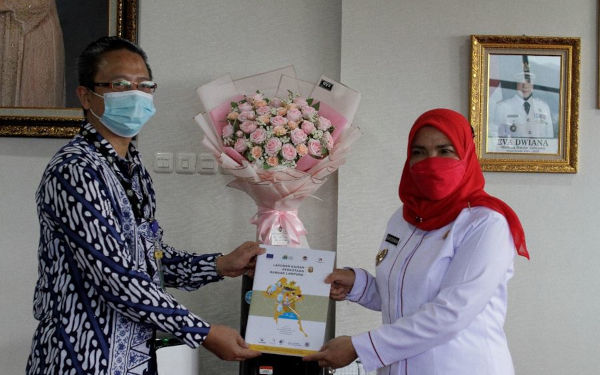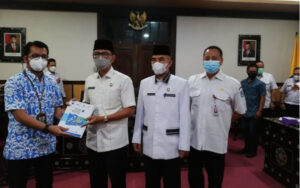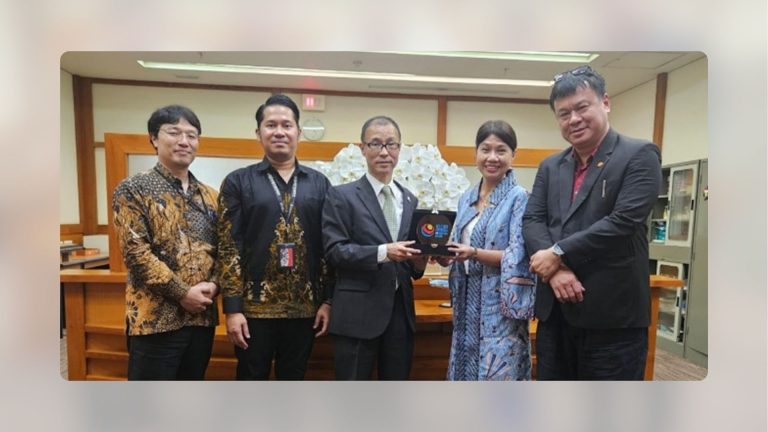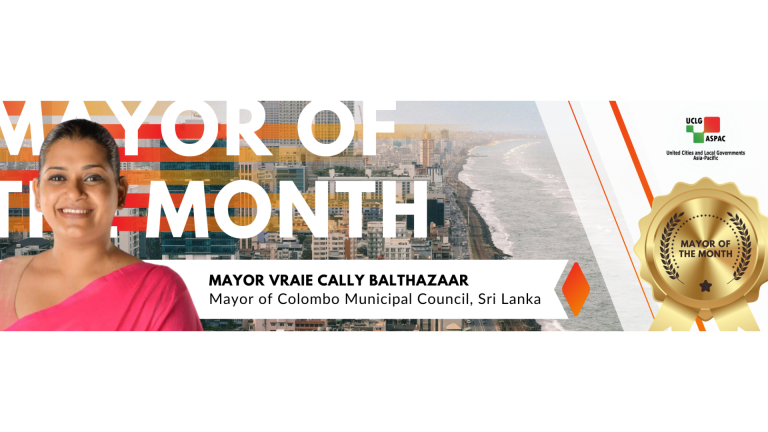The COVID-19 pandemic has hit its one-year mark. National governments as well as local governments around the world are moving forward with both mitigation and recovery plan.
One important aspect in recovery plan is climate action. The United Nations has expressed that despite a brief dip in global Co2 emissions as a result of the pandemic, a global temperature rise in excess of 3 degrees Celsius could still potentially happen[1].
Therefore, a strong climate action is needed, which is also part of COVID-19 recovery, to bring the world closer to the Paris Agreement goal of at most a 2-degree Celsius temperature rise. And it is also highlighted in the new global campaign “Race to Zero – Race to Resilience” that strives to unite cities and cities network to build the resilience of four billion people from groups and communities, and be low-carbon by 2030 (read more here).
To support cities and local governments in the development and implementation of climate action, UCLG ASPAC plays its crucial role through the Resilient and Inclusive Cities (CRIC) project. It is a collaborative work of UCLG ASPAC with partners which was launched on 29th January 2020. This project aims to assist Indonesian and other Asian cities’ efforts to protect their citizens and assets from the impacts of climate change and strives to promote sustainable urban development.
The climate governance is at the heart of climate action. The political will and commitment of cities and local governments is very crucial. It will give strong impact to climate priorities and strategies as it will lead to tailored-cut scope of activities to be developed.
Climate Resilient and Inclusive Cities (CRIC) is entering its second year of implementation whereas city engagement needs to be strengthened and maintained. A wide range of engagement activities were initiated such as organising sites visit to pilot cities. After visiting Cirebon City last month, the CRIC team visited Bandar Lampung City and Mataram City in the month of April.
In Bandar Lampung city, CRIC team conducted an audience meeting with Mayor of Bandar Lampung, Ms. Eva Dwiana, to discuss priorities and share knowledge related to climate action plan and implementation. During this meeting the CRIC team took opportunity to handover the Urban Analysis Report (UAR) to Mayor Eva Dwiana.
Following to the audience meeting, CRIC team held a coordination meeting with the City’s Development Planning Agency or Bappeda and Environmental Agency or DLH, to discuss the integration of climate-resilient and inclusive public policies into Bandar Lampung’s development plan, including strategic environmental assessment or KLHS prosses towards the Local Government Medium Term Development Plan or RPJMD framework.
To highlight city engagement in climate action and implementation, the CRIC team is also producing a profile video of Bandar Lampung City and collecting stories regarding climate resiliency at the local level through on-site interviews.
[1] According to the UN Environment Programme (UNEP)’s Emissions Gap Report 2020 released in December 2020.
On 7th April, the CRIC team had a courtesy meeting with the newly elected Mayor of Mataram, H. Mohsan Roliskana and Vice Mayor TGH Mujiburahman. During the courtesy meeting, CRIC team took opportunity to hand over the Urban Analysis Report (UAR) and to reintroduce UCLG ASPAC and the CRIC project, since the commitment was carried out by the former Mayor.
In addition, the CRIC team also addressed the possibility of implementing the waste to energy (WtE) project through the Integrated Resource Recovery Centre (IRRC) replication, in which it will emphasize city commitment and bring benefit to low carbon development.
Mayor H. Mohsan Roliskana expressed his strong commitment on the implementation of CRIC, and the UAR will be utilised as an input for RPJMD development, especially for environment-related issues. He also addressed that the CRIC project could support the city in achieving SDGs. He, then, ensured that the RPJMD will accommodate climate resilience and inclusive issues as a top priority and as it is crucial for the project’s sustainability.
Further, Mataram city will prepare anything related to the commitment of IRRC. The Mayor hoped that the project can be realized in 2022. This commitment has been reflected into the spatial planning of the potential location which will be integrated to Pasar Induk.
Besides the courtesy meeting, the CRIC team also held a meeting with Head of Environment office and team. One crucial issue discussed during the meeting is the establishment of Climate Working Group. The City Secretary mentioned the Mataram City commitment to speed up the establishment of Working Group. And this Working Group will be appointed under the Mayor Letter of Decree (SK Walikota).
—
Further information:
CRIC has been implemented in 10 pilot cities in Indonesia, namely Bandar Lampung, Cirebon, Pangkal Pinang, Pekanbaru, Mataram, Kupang, Samarinda, Banjarmasin, Gorontalo, and Ternate. Climate-related trainings and workshops have been conducted during 2020 and the Urban Analysis Reports for the pilot cities have been finalised with the addition of agreed priority sectors for each cities last year.
To know more about CRIC, please visit: https://resilient-cities.com/en/
By KM Team
Source: The CRIC project team












